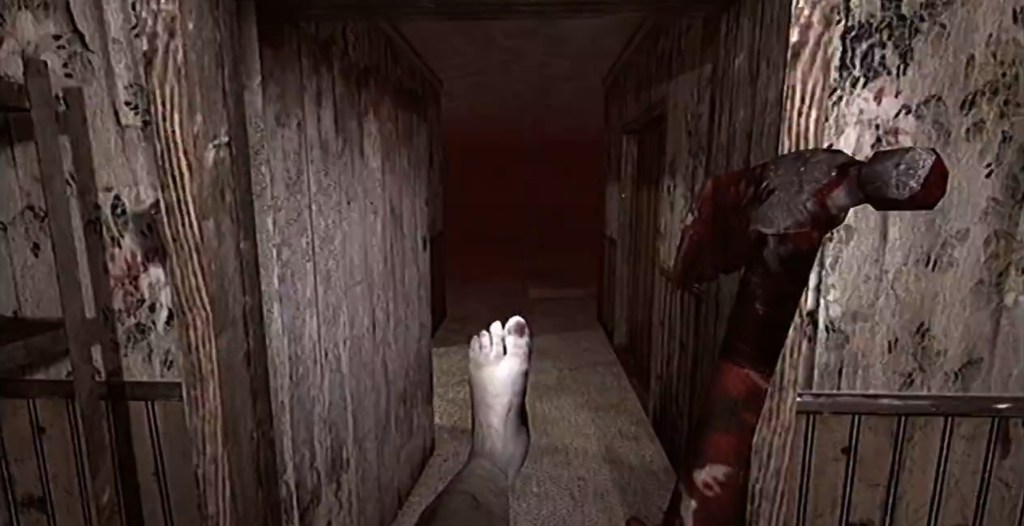By now, across the United States you’ve had the chance to check out Paul Thomas Anderson’s adaptation of Inherent Vice, Thomas Pynchon’s 2009 patchouli-scented, hazy detective story. The movie’s gotten mostly positive reviews; I liked it, and I’m certainly not here to tell you, “—but you gotta read the book.”
That said, you don’t have to be a librarian or a Luddite to realize that, medium to medium, some things are going to get lost, even in an adaptation as faithful as this one: A visit from the main character Doc Sportello’s parents didn’t feel terribly essential on the page, and didn’t make it to the screen; Doc has an acid trip that Anderson, likely wisely, opted against putting on film. Somewhere in the adapting, though, IV: The Film loses IV: The Book‘s slight-but-sly critique of ARPAnet, the progenitor of the internet.
Videos by VICE
Plot will be discussed, but spoilers avoided, if you’re an inexplicable person who reads Pynchon and watches PT Anderson for the plot twists. In this case, though, your fears are somewhat more valid, because IV is (mostly) a detective story.
Set in the post-Manson 60s/70s turn in Los Angeles, the thickest plot, such as there is one, involves the disappearance of the real-estate mogul Mickey Wolfmann, who was having an open affair with the ex-girlfriend of Doc Sportello, the stoned hippy of a private eye. Rumors surface that Wolfmann himself had turned hippy, realized that charging people for housing was wrong, and was planning on giving his money away, to atone—which looks like reasonable cause enough for someone to want Wolfmann out of the picture.
In the course of looking for Wolfmann, Doc pays a visit to his old PI-partner, Fritz Drybeam. Business is booming for old Fritz, because he just got something that every other PI’s going to want:
“It was like being inside a science-fictional Christmas tree. Little red and green lights were going on and off everywhere. There were computer cabinets, consoles with lit-up video screens, and alphanumeric keyboards, and cables running all over the floor among unswept drifts of little bug-size rectangles punched out of IBM cards, and a couple of Gestetner copy machines in the corner, and towering over the scene all along the walls a number of Ampex tape reels busily twitching back and forth.
‘ARPAnet,’ Fritz announced.
‘Ah no, I better not, I’ve gotta drive and stuff, maybe just give me one for later—’
‘It’s a network of computers, Doc, all connected together by phone lines. UCLA, Isla Vista, Stanford. Say there’s a file they have up there and you don’t, they’ll send it right along at fifty thousand characters per second.’”
Fritz tells him that new computers are going online all the time, with more and more surprises and information, even where to find missing people. Naturally Doc asks is if it knows where he can score.
ARPAnet comes up a couple more times, as Doc checks back in with Fritz who was using it for more pedestrian concerns—running license plate numbers and dock records—but even though he obviously understands what people would want to use the internet for (RIP Silk Road), Pynchon doesn’t really lay into the internet until his next book, 2013’s Bleeding Edge, another detective story that subs late dot-com bubble-era New York in place of 70s LA.
Techno-dread looks like a recurring theme in Pynchon’s work: dread at the V2 rocket and the “black device” in Gravity’s Rainbow, the unwieldy surveyor’s tools in Mason & Dixon, and of course his 1984 op-ed in The New York Times Book Review, titled “Is It Ok To Be A Luddite,” a rare instance of the famously elusive writer publicly addressing an audience under his own name.
Even back in 1984, Pynchon was warning about how the unprecedented amount of data that surrounds us is subject to both failings in the tech itself, and in those who are allowed to wield it. Pynchon’s a Luddite in the “class-warrior” sense that Motherboard’s Brian Merchant outlined last Labor Day, not in a “I-don’t-want-to-check-my-email-anymore,” technophobic one.
In the world of Pynchonalia technological systems are only as prone to corruption as human ones. The V2 rocket is a cog within a massive military-intelligence superstate at the end of World War II, and likewise ARPAnet fits into IV‘s themes about both the counterculture, the FBI, and the LA police departments all failing to live up to their ideals.
How could ARPAnet really be any different? By the end of the book, Fritz is worried that the FBI is tracking his online activity, and also swearing that he’s poured too much time into the computer, and it’s taking away from his actual life and work—novel sentiments in the ’60s that are pretty much cliché now. Fritz tells Doc how when his new hire, Sparky, “gets on this ARPAnet trip…I swear it’s like acid, a whole ‘nother strange world – time, space, all that shit.”
With all the foresight of a character set in the ’70s being written in the 2000’s, Doc asks:
“So when they gonna make it illegal, Fritz?”
“What. Why would they do that?”
“Remember how they outlawed acid soon as they found out it was a channel to somethin they didn’t want us to see? Why should information be any different?”
Therein lies the rub: just as Doc discovers that hippies often end up being informants and the cops realize corruption cuts both ways in IV, for all of its Whole Earth Catalog/Steve Jobs LSD tripping/saving the world rhetoric, ARPAnet becomes the internet becomes the NSA’s best resource. Jobs’s company goes from a garage to America’s biggest corporation.
And that crunchy save the world rhetoric? Well, old Mickey Wolfmann was a millionaire who said the same thing, and look what happened to him, Pynchon may be saying.
To paraphrase a book by its cover, the vice is, you bet, inherent.
More
From VICE
-

Screenshot: Shaun Cichacki -

Screenshot: Microsoft/Waypoint -

Screenshot: David Szymanski